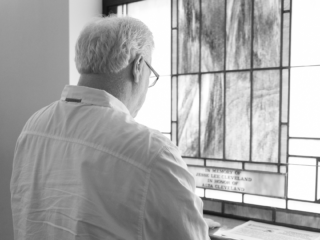I recently had a young pastor reach out to me to talk about his church. I’ve found out if you stay at one place for long enough, people begin to think that you’re an expert of some sort. I’ve been at Brentwood Baptist Church for 30 years, and well, people think I actually know what I’m doing.
So, he had a church growth question. “Our church has grown to about 1,000 on Sunday morning, but we can’t seem to grow past that. We’ll bump up to 1,100 or 1,200 and then, we’ll drop back to 900 and start over again. What do you think?”
“You have a capacity problem,” I said.
“No,” he answered, “we have plenty of space in our buildings.”
“You didn’t hear me,” I said. “I didn’t say you didn’t have any space in your buildings. I said you, the pastor, have a capacity problem”.
I went on to explain that what he was running up against was the limits of his own capacity as a leader. He could, in his current practices and systems, handle about a thousand people, but he lacked the capacity to handle more. If his church was going to grow, he would have to create more capacity as the pastor of his church.
When you’re in your first pastorate, you do everything. You take care of the budget, the printing of the bulletin, building maintenance, community relations, and pastoral care. You preach all of the sermons, do all of the weddings and funerals, and you pray all of the prayers. While you’re in the middle of it, you’re constantly overwhelmed and underprepared. In the long run, however, it does prepare pastors for the long many facets of ministry.
The irony of the ministry is the larger your church, the fewer things you do. My church needs me to be doing a handful of things – and only a handful of things. They don’t need me to do anything else. In fact, I actually hurt the church if I’m involved in areas where I don’t have any passion or gifting. There are people in my church who are much better than I am in any number of things.
Basically, my church needs me to do two things: study to preach and teach the Scriptures and think about the future of our church. So, over the years, my job has come down to three things: preaching and teaching, training leaders, and vision. That’s it. A very effective team of staff and lay leaders handle everything else.
I say “over the years” because with me being at this church for 30 years, I’ve actually been the pastor of 4 or 5 churches at the same address. We’ve gone from a community-based church to a regional, multi-site congregation. Each time we grew, we had to rethink the role of the senior pastor. What does the church need from me at this stage of the church’s life? How involved do I need to be in the various processes of congregational life? What can I release to a layperson? When do we need to hire a person with particular skills to better define our church’s structure?
To be honest, letting go of things wasn’t easy for me. In fact, there were times when I chafed at the idea of being “pushed out” of certain areas of leadership. I thought I had to be involved in every decision and every detail of every decision to get something done. I thought I had to make every hospital visit and respond to every pastoral care need.
You can readily see where that would lead to disaster for me and the church.
Right now, we must grasp this idea of giving ministry away. The first Reformation gave the Word back to the people. The second Reformation will give ministry back to the people. Pastors will have to be the first ones to understand this. As long as we think we’re the only ones who can do the ministry of the church, our churches will be hampered in their effectiveness and limited in their impact. As we’ve mentioned before, Christ followers are called from their sinfulness and called to a partnership with Christ in the service of His kingdom.
Working with Jesus is one of the ways Jesus forms His followers. There are some lessons we learn only in obedience. You can watch a video on changing a tire, but until you have to dig out the tire tool and spare tire from your trunk, loosen the lug nuts, and actually change a tire, you don’t know how to change a tire. In the same way, you will read in the Scriptures where Jesus will supply all of our needs, but until you’re in a place where you’re sunk unless Jesus comes through, you don’t know the truth of this promise.
Christ has prepared His church for every aspect of ministry. He has gifted His church so that for every effort or need, there’s someone in the church who has been called to that purpose. Whenever we don’t allow that person to be engaged in the ministry for which they were gifted, we rob them of the blessing of knowing they are being used in a way that grows and enhances the work of the kingdom of God.
Now, here’s the most surprising part of this story. Once the ministry has been transferred to the person in the church who’s gifted and called for that ministry, everyone is happier. The pastor is happier because all of the weight of ministry isn’t falling on them. The member is happier because they’re doing something that makes a difference. The community is happier because the church is working as the church should.
For churches to grow, pastors must create capacity for more ministry, and we do this, not by doing more, but by giving more away.









